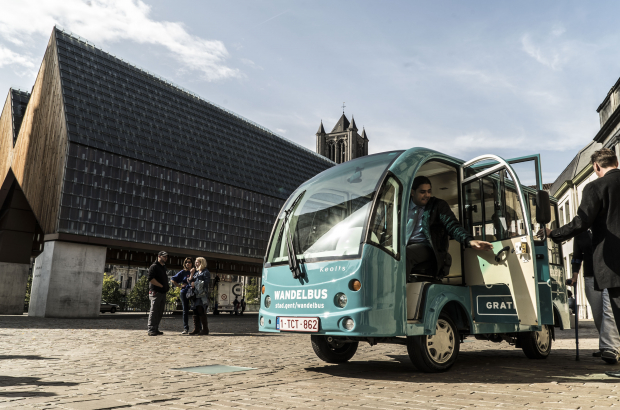- Daily & Weekly newsletters
- Buy & download The Bulletin
- Comment on our articles
Ghent's traffic plan leads to sharp drop in pollution
The traffic plan that came into force in Ghent last year has succeeded in drastically lowering the amount of nitrogen dioxide in the air, according to Flanders Environment Agency, which has carried out measurements.
The government agency measured the concentration of the gas, emitted by vehicles, at 20 locations across the city centre just before the plan came into force in April of 2017. It has just completed a new measurement. Air quality is better in all of the locations by an average of 20%.
“In some places it’s as high as 30%,” city councillor for mobility Filip Watteeuw (Groen) told Radio 1 this morning. “That’s incredibly good news.”
Watteeuw was instrumental in getting the traffic plan approved by the city council and put into place. The plan includes making additional streets car-free, restricting vehicular movement by blocking some entries into the centre from the ring road and making it impossible to travel from one section of the centre to another by car. Delivery vehicles, taxis and busses are exceptions.
One of the goals of the plan was to decrease the concentration of fine particles and gas emissions in the city centre. Planning began in 2014 after a report by three government agencies showed that parts of the centre of Ghent were among the top five polluted areas of Belgium. Traffic was to blame, said the agencies.
“We see that air quality has improved, that there are fewer car accidents and that more people are using their bicycles as well as taking public transport. The traffic plan works.”
The plan was not without opponents when it was implemented. Local businesses feared that custom would drop if people could not reach them by car. N-VA, in opposition in the city council, was staunchly against the plan and tried to work up support for a referendum to oppose it.
“If you ban cars from the city and the motto is essentially ‘the bicycle or nothing’, then it’s logical that the air quality will improve,” Anneleen Van Bossuyt, an N-VA MEP from Ghent told VRT. “We can only be glad that the air quality has improved; we see the same thing happening across Flanders.”
Van Bossuyt says that fewer people are coming to the centre of Ghent due to the difficulty of being able to drive and park. “We are seeing that many people from Ghent’s surrounding districts are now avoiding the centre of town. The number of empty shops are increasing, and the middle-class is disappearing.”
In terms of air quality, Watteeuw responded that, while it was indeed improving across Flanders because of fewer diesel-burning cars on the roads, nowhere has it improved as dramatically as in Ghent.
Photo: Ghent’s electrically powered Wandelbus, a free service in the city’s pedestrian zone ©Jonas D’Hollander/BELGA


















